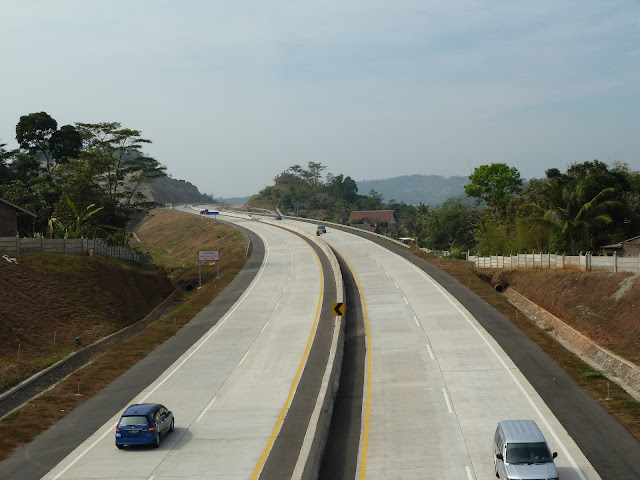These are the Benefits and Drawbacks of Concrete and Asphalt Toll Roads
Physical infrastructure development is currently being accelerated by the Ministry of Public Development and Public Housing (PUPR). Toll roads are one of the infrastructures that are being improved in various places. Concrete and asphalt are frequently utilized in the construction of toll roads. What are the benefits and drawbacks of each, then?
The following are the benefits and drawbacks of using asphalt and concrete for toll roads, according to grobogan.go.id:
Asphalt Toll Roads
Have Advantages
- Compared to concrete building, initial construction costs are relatively lower.
- The road is less rough and more supple, making driving more comfortable.
- The psychological state of the cyclist is calmed and made more comfortable by the black hue of the road.
- The building of asphalt roads is less expensive than that of concrete roads for use on routes with little vehicle traffic.
- The replacement of the damaged asphalt road area by digging up the old one and replacing it with a new one makes the maintenance process simpler.
- Recommended for roads with a solid subgrade and a functional drainage system.
Lack Of Toll Roads
Made Of Asphalt
- Because asphalt is not water-resistant, it needs efficient drainage channels to dry off after rain or flooding.
- Before laying down asphalt road construction, soil repairs in structures with bad soil must be completed.
Concrete Toll Roads'
Benefits
- Able to support large truck loads.
- Flood- and puddle-resistant.
- Asphalt roads have lower maintenance expenses.
- Can be utilized without previously enhancing the soil structure on weak/expansive soil structures with low CBR.
- Purchasing materials is now simpler.
- Recommended for roads with a poor subgrade and for routes with a lot of heavy traffic.
Lacking Concrete
Highways
- Concrete roads are more expensive to build than asphalt roads, but they cost less to maintain when used on highways with heavy vehicle loads.
- Strict supervision is necessary because the casting process determines how smooth and waved the road will be.
- The process of repairing roads involves traveling over old concrete road construction, which occasionally raises the road elevation above the nearby structures.
- The concrete's tint creates a harsh, arid atmosphere on the road that makes drivers more cautious.


Post a Comment for "These are the Benefits and Drawbacks of Concrete and Asphalt Toll Roads"